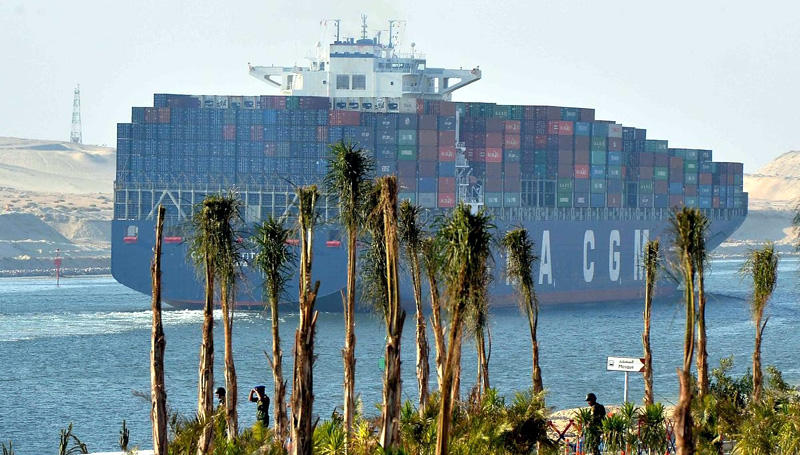The new Suez Canal will enhance the commercial movement especially in the Canal cities, Angy Essam will explain the effect of the new Suez Canal on the commercial sector
Most of the investors and experts regard the new Suez Canal as a step on the right track toward achieving the targeted economic development, increasing the Egyptian investments and putting Egypt in its right position on the international economic map. But one of the main goals the new Suez Canal was established for is to increase the commercial movement between the Egyptian ports, the matter that will uplift the shipping and stevedoring companies. All the investors and the massive companies whether local or foreign are waiting for the Egyptian engineering authority announcement of the new Suez Canal projects to set the investments plans and form a clear future vision.
Egypt has many opportunities to establish many projects in Suez Canal and attract a lot of foreign and local investors especially the projects that are suitable to the nature of the place, there are services and logistics projects that don’t need costly foreign experiences. The projects will present services to the ships and its workers in addition to adding value to the goods before re-exporting it. The Suez Canal projects will include assembly industries projects that work on collecting the raw materials only without manufacturing it, the matter that will require in the coming period to attract the large global companies and partnering with foreign countries like Poland that Siemens and Blackberry companies rely on in the assembling issues because of its location. Most of the developed countries economy rely on similar industries to uplift its economy.
Mohamed Elmasry, the head of Port Said Commercial Chamber, said that the new Suez Canal will make Port Said return back to its previous golden era. Elmasry explained that Port Said governorate is considered the entrance to East Port Said, Suez Canal authority and the Gulf area so this will increase the competitive ability of Port Said thus eliminating the tough economic state Port Said is suffering from since a long period of time. Elmasry pointed out that there are a lot of projects that could be established in the New Suez Canal and Port Said. “There will be aggregate industries because the Gulf area acquires about 60 per cent from the import and export percentage of the European Union and Southeast Asia,” Elmasry noted. He added that the projects will include establishing navigational services companies, ship financing activities that include a lot of services, filling stations, building containers, container maintenance and expanding the aquaculture projects and exporting the production in addition to the transit fees.
About the effect of the new Suez Canal on increasing the competitive ability of the Egyptian ports, the head of Port Said Chamber of Commerce pointed out that the new navigation line related to the New Suez Canal will work to prevent the deviation in the Egyptian ports which will in return decrease the time of the ship passage as well as its fuel consumption the matter that will increase the competitive ability of the area by increasing the ships movement as well as enhancing the charging and discharging operations. “The strategic location of Port Said will make the governorate distinguished in the transportation and manufacturing for the sake of exporting fields, it is possible also to establish multi-modal transport land port”, said Elmasry.
The new Suez Canal will not only uplift the local commercial movement, but it will improve the international one as well. The new Suez Canal will reduce the shipping charges between East African countries, Gulf, Europe and East Asian countries because of the fast transportation the New Suez Canal ships will provide. By numbers the time of the ships passage will be reduced from 20 hours to 11 hours only in addition to minimizing the ships waiting hours to 3 hours only. The positive effects of the new Suez Canal will reflect on the oil tankers that come from oil exporting Gulf countries like Saudi Arabia, Kuwait, United Arab Emirates and Qatar as it will reduce the transportation costs of the petroleum materials by 25 per cent as per the experts’ expectations.


